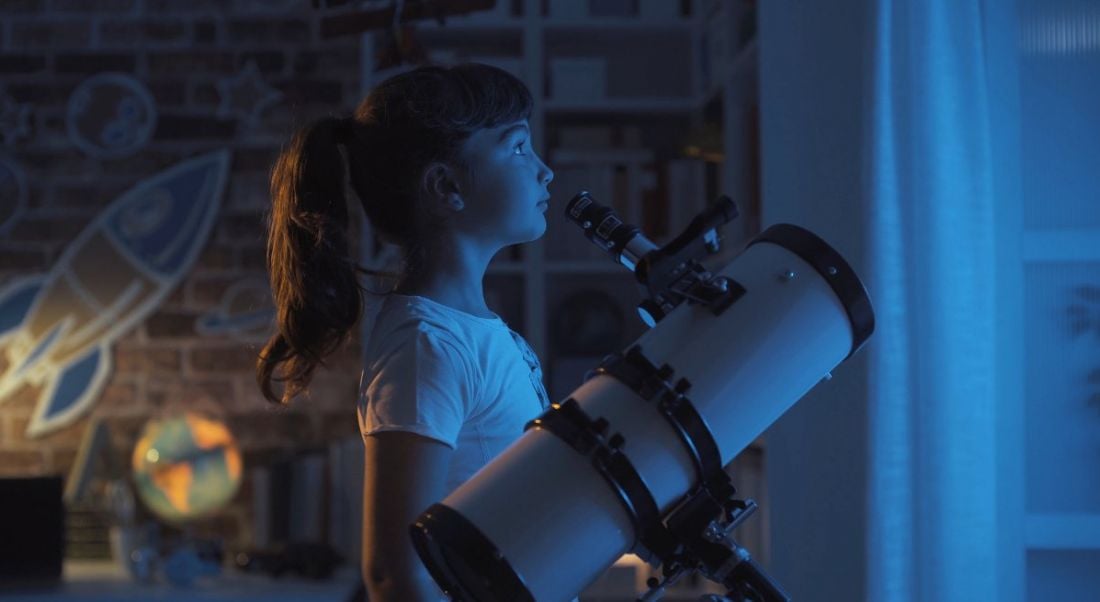How can we create the next generation of Jocelyn Bell Burnells in Northern Ireland? Tara Walsh of MakeMatic has some ideas.
Space infiltrates all aspects of our lives, from communication and entertainment to mapping. A growing industry in the United Kingdom, it is a significant emerging market that includes academia, industry and government. It’s an industry that continues to inspire and enthral young people and adults alike.
The United Nations has set some ambitious targets for humans to solve some of the world’s biggest challenges by the year 2030. It is space travel, exploration and technology that will have a critical role in addressing these key challenges.
It’s predicted that the global space-related market will be worth £400bn by 2030. Northern Ireland (NI) has the ambitious target of attracting £2bn worth of that market.
Creating a talent pipeline
55pc of the workforce in NI is under the age of 40. For NI to achieve its £2bn target, a talent pipeline needs to be developed. A pipeline of young people who are engaged in STEM subjects, who understand the important role space plays in our lives and know about career pathways in the space sector. Schools have a big role to play here.
Careers education
Careers education should start in primary school because children form views about careers at a very early age. According to the Department for Education Careers Strategy, many young people perceive STEM subjects as either not suitable or too challenging. Inadequate careers advice is a big contributor to this.
In addition to the promotion of STEM subjects, more opportunities for students to engage in enterprise, entrepreneurship and skills education will further help develop the pipeline. Moreover, young people need to understand the important role the space industry has in their day-to-day lives and the opportunities that the space sector has in terms of a career pathway. Industry and relevant university departments have a key role here in engaging with schools through competitions like the UK Youth Rocketry Challenge, festivals like the NI Science Festival and World Space Week, and careers fairs.
STEM teachers can develop this pipeline further by knowing about and referring students to resources like the space careers website. Schools, meanwhile, can offer subjects like the CCEA Space Science Technology at GCSE. As part of pre-service training, all aspiring teachers should do a module on careers education – not to become a careers leader, but so they can promote their subject and talk about career pathways in their area of expertise. Expecting educators to know how to promote and talk about careers in relation to their subject without some initial training is naive.
STEAM
Putting the ‘A’ in STEM can enrich and expand the scope of STEM education. STEAM engages students in transformative learning and may engage students who have been put off by STEM because of bias or an incorrect perception of the subjects.
Start sharing stories
Before British astronaut Tim Peake went into space, it seemed that the only astronauts who did so were American, Chinese or Russian. That’s why hearing stories about people who have done some interesting things in space is essential. Hearing stories about people who are closer to home is even better.
Have you ever heard of Dame Jocelyn Bell Burnell? She is an astrophysicist from Lurgan who discovered the first radio pulsars. Telling stories about local people who have done amazing things in the space sector is a great way to inspire young people.
It’s not rocket science. The things that need to be done are all achievable if we want NI to develop the next generation of Dame Jocelyn Bell Burnells.
By Tara Walsh
Tara Walsh is a development producer at MakeMatic, which crafts video and animated content for educators to better teach STEAM subjects. She has worked in the education sector in Australia and the UK for nearly 20 years.
A version of this article originally appeared on TechWatch




